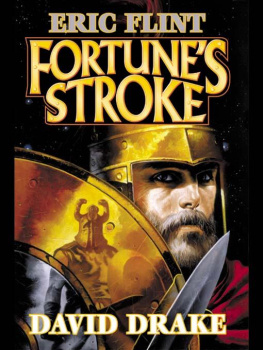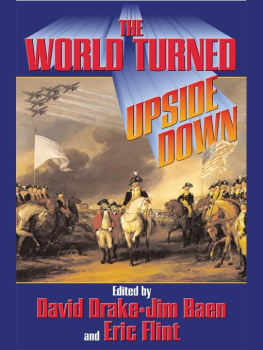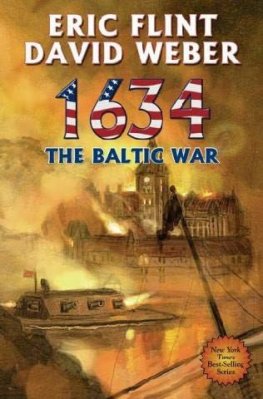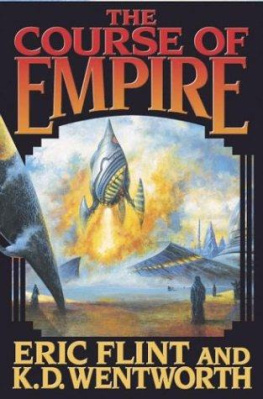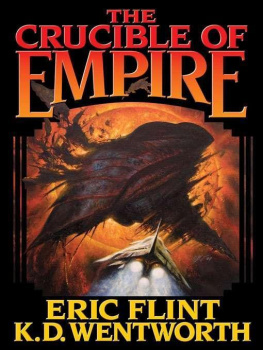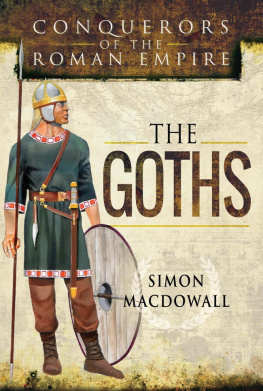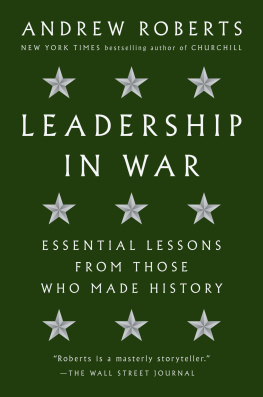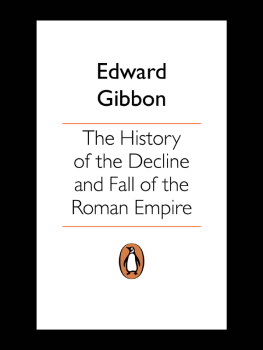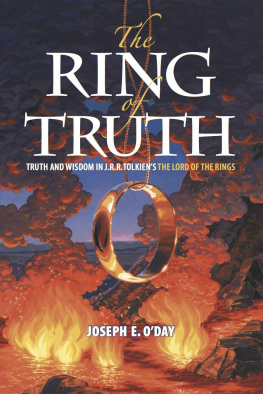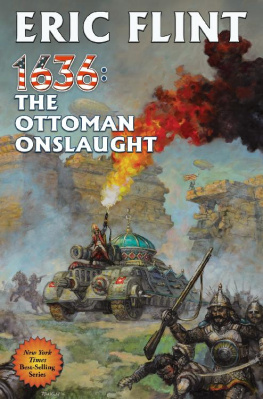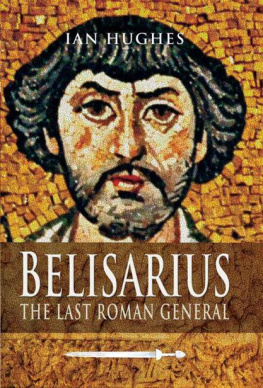Chapter 12
On his way back up the slope, Belisarius stopped when he came to the trenches where the handcannon soldiers were dug in. He turned to Maurice, waving his hand.
"Go on ahead, and see to the rest of the army. I want to go over our plans one last time with Mark and Gregory."
Maurice nodded, and continued plodding toward the crest of the pass. His progress was slow. The trench through which he was moving had been recently dug. The soil was still loose, making for unfirm footing. His biggest difficulty, however, came from the sheer weight of his weapons and armor. Cataphract gear was heavy enough, sitting on a horse. For a man on foot, climbing uphill, the armor seemed made of lead ingots instead of steel scale. The weapons weighed more than Nero's sins.
Belisarius felt a moment's sympathy for Mauricebut only a moment. He was wearing his own cataphract gear, and would be making that trek himself soon enough. If the war against Malwa dragged on for years, Belisarius thought the day would come when Roman soldiers could finally be rid of that damned armor. In visions which Aide had given him of gunpowder armies of the future, soldiers had worn nothing but a plate cuirass and a helmet. Just enough to stop a bullet, except at close range.
He sighed. That day was still far off. Belisarius had spent hoursand hours and hoursstudying the great generals of the future, especially those of the first centuries of gunpowder warfare. Aide knew all of human history, and the crystal had shown Belisarius the methods and tactics of those men. Jan Zizka; Gonzalo de Cordoba and the Duke of Parma; Maurice of Nassau; Henry IV of France; Tilly and Wallenstein, and Gustavus Adolphus; Turenne and Frederick the Great; Marlborough; Napoleon and Wellington; and many others.
Of all those men, the only one Belisarius truly admired was Gustavus Adolphus. To some degree, his admiration was professional. Gustav II Adolf, King of Sweden, had reintroduced mobility and fluid tactics into a style of war which had become nothing more than brutal hammering. Massive squares of musket and pike slamming into other such squares, like the old Greek phalanxes.
But, for the most part, Belisarius was attracted by the man himself. Gustavus Adolphus had been a kinga very self-confident and ambitious king, in point of factwho was by no mean immune from monarchy's vices. Still, he had been scrupulous about consulting the various estates of his kingdom, as he was required to do by Swedish law. He had managed to win the firm loyalty of his officers and soldiers by his fair and consistent conduct. He was as good a king as he was a generalSweden was, by far, the best administered realm of his time. He had been the only king of his day who cared a fig for the needs of common folk. And his troops, when they entered the Thirty Years War under his command, had been the only soldiers who did not ravage the German countryside.
I would have liked to meet that man, he mused.
Aide's voice came into his mind. The crystal's thoughts were hesitant, almost apologetic.
He will never exist, now. Whatever happens. If Malwa wins this war, and Link establishes its domination over mankind, there will be no kings like that. Not ever.
Belisarius' face tightened. Link, the secret master of the Malwa dynasty, was an artificial intelligence sent back in time by the "new gods" of the future. Belisarius had met the creature, once, when he was in India. It had taken the form of Great Lady Holi, the aunt of the Malwa emperor. Aide called it a cybernetic organism.
Belisarius' eyes drifted across the landscape of the Zagros, as if that rugged mountain range was a metaphor for human destiny. The slopes of those mountains were rocky, treacherous, and at least half-hidden by spurs and crests. Belisarius had learned much, over the past four years, about mankind's futureit would be better to say, futures, because the "new gods" had their own plans for shaping human destiny. But he still did not know much about the "new gods" themselves. Aide, he was sure, was not withholding information from him. The crystal was simply incapable of understanding such mentalities.
Belisarius thought he understood them. They reminded him of religious fanatics he had met. Orthodox or Monophysite, it mattered not. All such men were imbued with the certainty that theyand they aloneunderstood the Will of God. Those who opposed them were not simply in error, they were the minions of Satan. To be scourged, that others might be cleansed.
That was the vision, he thought, which animated the "new gods" of the future. Outraged by the chaotic kaleidoscope of humanity, as it spread through the stars, they were seized by a determination to purify the race.
There had been no conceivable way to accomplish that goal, in their future time. Humanity had settled throughout the galaxy, and all the galaxies nearby. Isolated by incredible distances and the speed of light, each human planet went its own way. The human species was evolving in a million different directions, like the branches of a great tree, with nothing to bind it but a common heritage and the slender threads of the Great Ones in their travels.
So, the "new gods" had sent Link back in time, to alter history when humanity was still living on a single planet. To crush the mongrel empire called Rome, and to build a world state centered in north India. The "new gods" intended to use the Hindu caste system as the germ for what they called a "eugenics program." They would purify the raceand if, in the doing, they slaughtered millions, they cared not the least. Those were cattle, at best, if not outright vermin. Only the "new gods," and those they would shape in their image, were truly human.
Aide was right. If Malwa won, there would be no kings in the future like Gustavus Adolphus.
And if we win? he asked. But he knew the answer, before Aide even gave it.
Then you will have changed history also. The course of it will remain, like a broad river, but the banks will be altered. There may not even be a country called Sweden, in that future. There certainly won't be a man named Gustavus Adolphus. Or, if there is, he's as likely to be a peasant or a glassmaker as a king.
For a moment, the thought saddened Belisarius. The Roman general had no doubt of the righteousness of his cause. None at all. But even the most just war causes destruction. Saving that great, flowering tree of humanity's future, Belisarius would crush many of its buds. There would be no Gustavus Adolphus. No Shakespeare; no Cervantes; no Spinoza and Kant; no Sir Isaac Newton.
The moment passed. But there will be others, like them.
Yes, came Aide's reply. Quietly: And there will be a place, too, for others like me. We are also people, with our own rightful place in that great tree.
* * *
Belisarius' musings were interrupted by a voice.
"How soon do you want us ready, general?"
Belisarius snapped out of his reverie and focused his eyes on the speaker. It was Mark of Edessa, the commander of Belisarius' new unit of handcannon soldiers.
An idle thought crossed Belisarius' mind. I have got to come up with a new name for them. "Handcannon soldiers" is just too much of a mouthful.
Belisarius took a moment to examine the man. Mark was in his early twenties. He was a Syrian, of predominantly Arab ancestry. That was useful, given that most of his men were of similar stock. Like all Roman soldiers, the men spoke Greekor learned to, at least, shortly after enlisting. But Mark's fluency in Arabic and several of the Aramaic dialects had proven valuable many times.
But that was not the principal reason Mark had been given this new command. The young officer, during the course of the previous year's campaign in Mesopotamia, had shown himself to be resourceful and reliable. He alsothis was quite unusual for a cavalrymanhad no objection to fighting on foot, and had proven to have a knack for the new gunpowder weapons.

